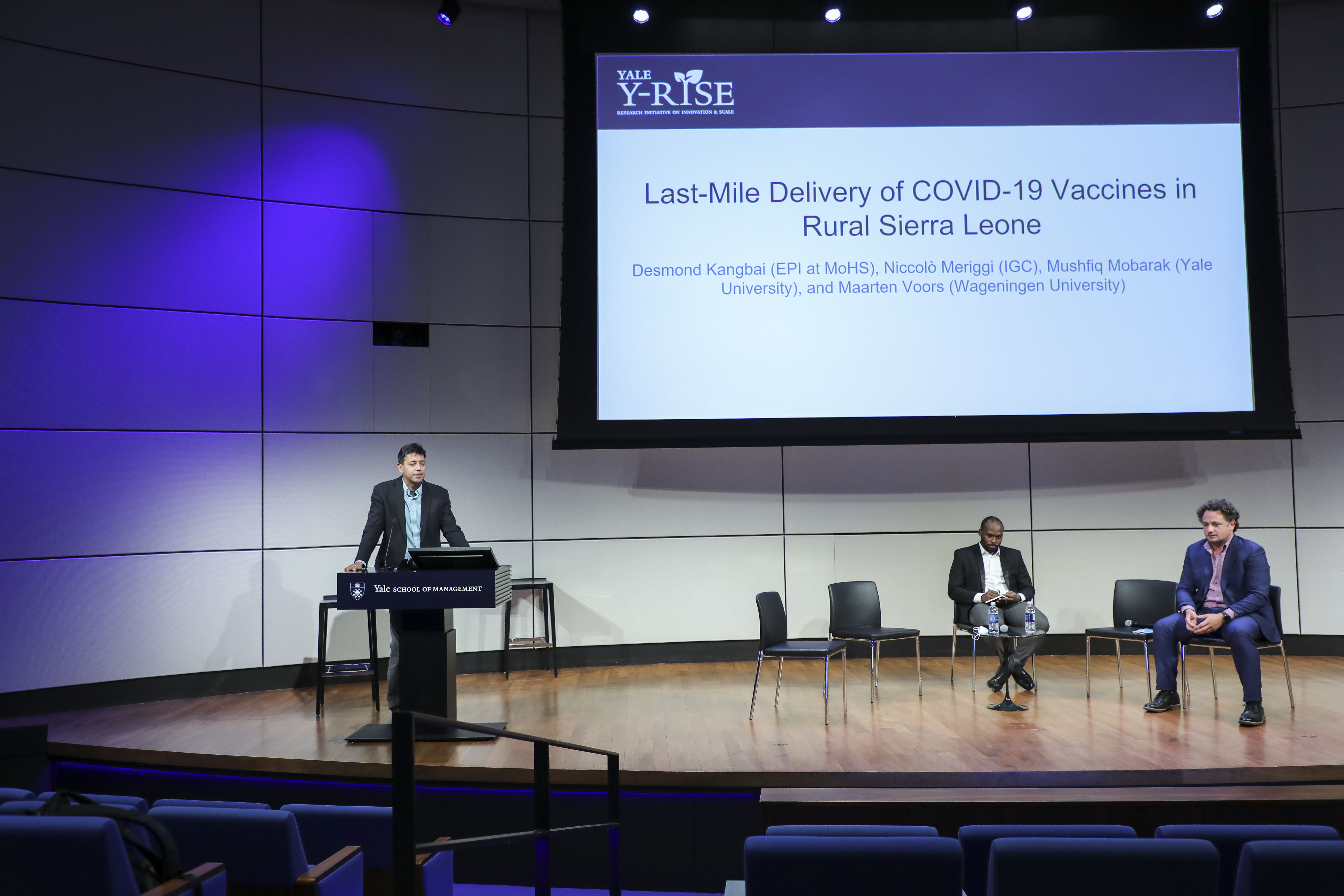
Yale SOM Hosts Global Vaccine Inequality Conference
“We know we live in a very unequal world, and it hasn’t become less unequal during the pandemic,” said Saad Omer, director of the Yale Institute for Global Health, at the start of the Y-RISE conference on the vaccine inequality. and the COVID-19 pandemic on April 28.
The conference brought together speakers from various sectors, including academia, government and philanthropy, as well as countries like BEngland, Nigeria and Sierra Leone, who discussed how the social, geographic, and economic inequalities that Omer alludes to have fueled vaccine inequities in developing countries. They also shared lessons to be learned from the response to the COVID-19 pandemic on achieving equity through the implementation of better access and delivery models.
In the first panel of the day, Omer and Nobel Laureate Michael Kremer of the University of Chicago discussed how misperceptions about low- and middle-income countries (LMICs) have deepened inequalities in vaccines. For example, Omer said, perceived vaccine hesitancy in (PRFIs) has been used to justify the deprioritization of equitable global vaccine distribution. However, a study conducted between June 2020 and January 2021 on attitudes towards vaccination in 10 LMICs showed that acceptance rates for basic vaccines were higher in LMICs than in the United States. in the United States, but we never used that as an excuse to decide how many doses were ordered,” Omer said. “That wasn’t even part of the conversation.”
During the second session of the conference, researchers from the Yale School of Management at Stanford and the University of California at Berkeley shared the results of a large-scale study of mask delivery in Bangladesh which was co-authored by Yale SOM professors Jason Abaluck and Mushfiq Mobarak. Since its publication, the study has prompted policy changes and targeted interventions aimed at reducing health inequities during the pandemic.
Later in the day, Mobarak, who is faculty director at Y-RISE, addressed another driver of global vaccine inequity: “Access issues are real,” Mobarak said. “Even after you have great development and distribution mechanisms in place, you actually have to solve very practical challenges to get vaccines into people’s arms.”
Mobarak offered an overview of his ongoing research into scalable, cost-effective treatment interventions for last-mile delivery of vaccines in rural Sierra Leone. He was joined by his study co-author, Dr Desmond Kangbai of Sierra Leone’s Ministry of Health, and Niccolo Meriggi of the International Growth Centre.
On average, Mobarak said, it takes three hours each way to get to a vaccination center, and the trip costs $6.50, or about two weeks’ salary. As a result, “people aren’t hesitant to get vaccinated, but they’re also not eager to get vaccinated,” he said.
The Sierra Leone study adapted interventions from the model developed in the Bangladesh mask study and brought vaccines and nurse administrators directly to remote communities, often on motorbikes, where vaccination clinics would be set up. for 48 hours. The delivery of the vaccine to the communities was supplemented with either door-to-door outreach or outreach in small groups to encourage community members to get vaccinated during the 48-hour period.
The research team tested the effects of these interventions using a randomized controlled trial. With door-to-door outreach, vaccination rates increased from 7% to 35%, and up to 32% with outreach in small groups.
“If you don’t send doses of vaccine, governments don’t have the opportunity to engage in the learning-by-doing and experimentation needed to put in place the last mile delivery systems,” he said. said Mobarak. “We really shouldn’t use hesitation as an excuse to deny anyone vaccines.”
In the final session of the conference, Hakeem Belo-Osagie of Harvard Business School moderated a discussion on healthcare access and equity in Africa.
Panelist H.E. Mallam Nasir El-Rufai, Governor of Kaduna State in Northern Nigeria, highlighted ‘limited availability of vaccines’ as a ‘major issue’ in tackling vaccine inequities . “When we mobilize for vaccination and people go out to get vaccinated and then we run out, trust issues arise. People are getting discouraged that maybe this is all just a game.”
Chikwe Ihekweazu, deputy director general of the World Health Organization, said it was important to look at the big picture when considering issues of vaccine inequality. “It’s more a consequence of a deeper issue than an input factor. It really depends on how we look at health, health care and education. Do we look at these things as something that the rich deserve to have or as a global public good that every citizen deserves to have access to?” says Ihekweazu.
In her closing remarks, Belo-Osagie sounded the alarm for action to address systemic inequalities.
Thanks to the speed at which vaccines have been developed by the medical and pharmaceutical communities, Belo-Osagie said, “we escaped the worst fears of COVID, but we did it in a way that left millions, even billions of people unprotected and large groups of the world excluded because of costs.We are left with a critical need to reconnect as a world so that the worst possibilities do not occur in the future.

Comments are closed.